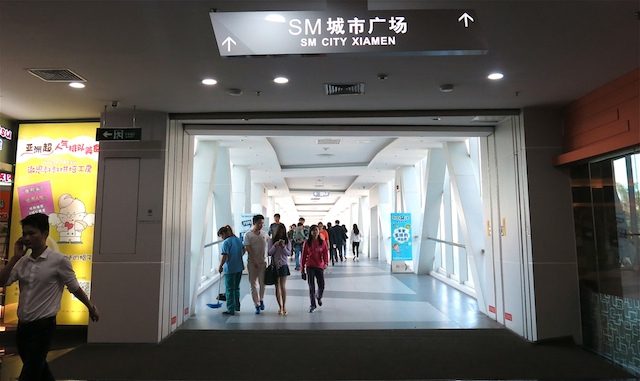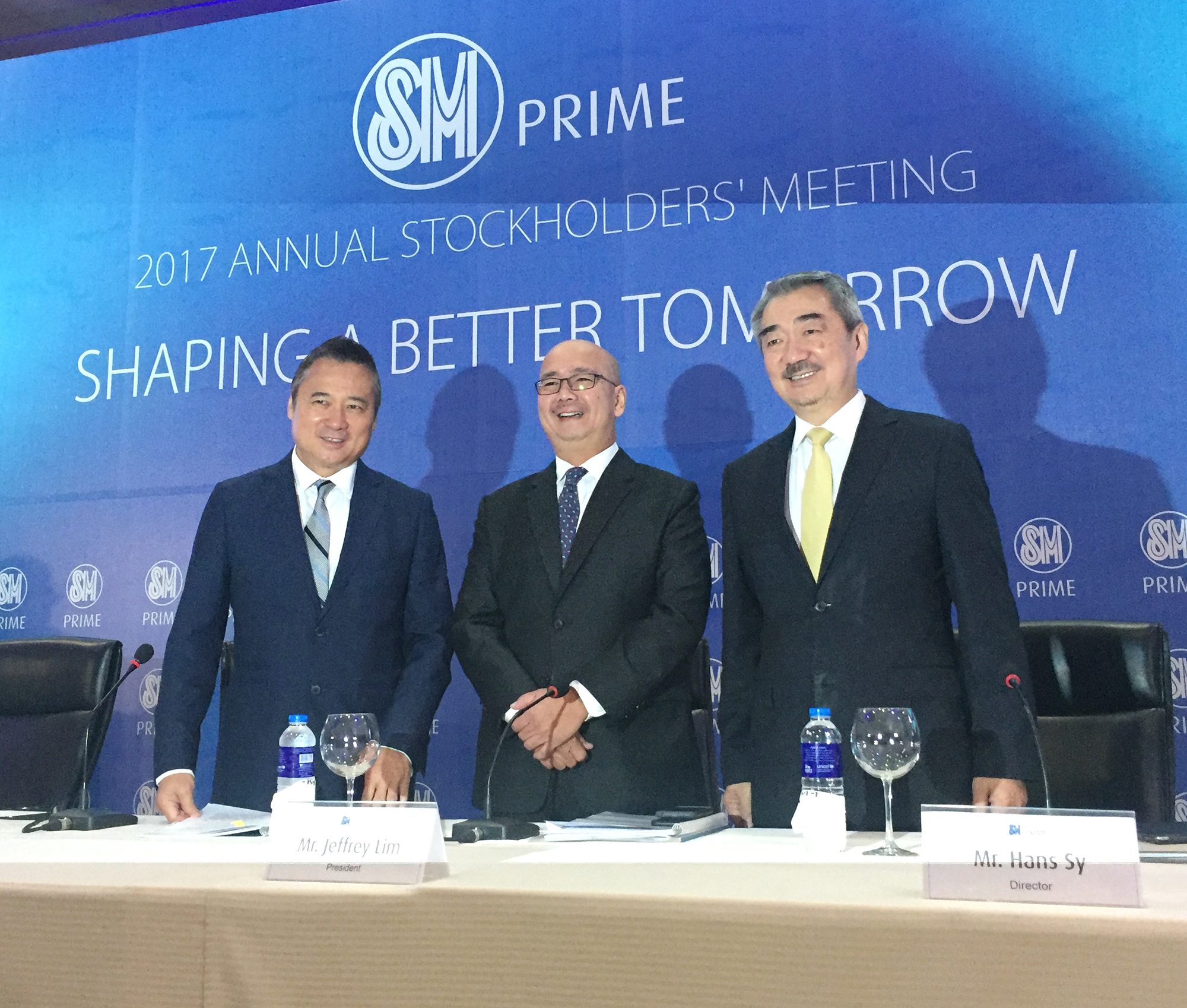SUMMARY
This is AI generated summarization, which may have errors. For context, always refer to the full article.

MANILA, Philippines – China’s economic growth is slowing down, but the spirit of SM Prime Holdings Incorporated and Ayala Corporation is not dampened at all.
While SM Prime plans to increase its investments in China, the Philippines’ oldest conglomerate, Ayala, is in talks with several Chinese firms that are interested in venturing into Philippine infrastructure.
“Even with the slowdown, it is still a tremendous opportunity to be there. China is stil the number two economy in the world. This is one space I believe we should not miss out,” SM Prime chairman Henry Sy Jr said in a press conference on Tuesday, April 25.
For Ayala Chairman Jaime Augusto Zobel de Ayala, “The Ayala group will ride with it (One Belt, One Road initiative) because we are involved in many industries, so one way or another, we’ll be participants in these opportunities.”
“I believe [Chinese] groups have approached Ayala Land Incorporated, and I’m sure they’ve approached the infrastructure side as well. We’re always assessing and looking,” Zobel de Ayala added.
China’s economy, the world’s second largest behind that of the United States, grew 6.9% during the last quarter, driven by strong expansion at factories, the NYTimes reported.
While analysts have warned of a contininuing economic slowdown in China, households there continue to produce strong demand for real estate. SM Prime is quick to make the most of this opportunity.
The Sy family’s property company will start pre-selling its housing project located next to its mall in Chengdu, Sichuan province, by end-2017.
“We have started developments of SM Residences in one of our malls, SM Chengdu. We have started to construct, but we are not allowed to pre-sell yet unless we finish the ground level. We expect that to start before the end of the year,” SM Prime president Jeffrey Lim said.
“It’s a test project for us to see how the market will respond to an SM Residences development. If we get good sales, we’ll do more but within the shopping complex of SM, not stand-alone,” Lim added. (READ: Duterte faces Asia’s Goliath: What PH stands to gain or lose in China)

SM Prime has 7 malls in China: SM City Tianjin, SM City Xiamen, SM City Jinjiang, SM City Chengdu, SM City Suzhou, SM City Chongqing, and SM City Zibo.
“Our China operations represents 9% of SM Prime’s revenue and 4% to 5% in terms of bottomline. We continue to receive positive feedbacks. By the end of the year, we expect SM Tianjin mall to be 70%-80% occupied,” Lim said.
SM Prime is also looking at putting up developments in Fujian province.
“As far as Fujian is concerned, there are a few talks with certain properties already. Not closing the deal yet, but that’s the direction we’re going into now,” SM Prime executive committee chairman Hans Sy said.
SM Prime plans to spend at least P100 billion over the next two years to support its developmental goals here and abroad.
Ayala’s major partners from China
At the same time, the friendlier ties between the Philippines and China presents an opportunity for Ayala. It has partnered with major Chinese players in different industries.
For instance, Chinese billionaire Jack Ma’s Ant Financial Services Group acquired a “substantial” minority stake in a unit of Ayala’s telco subsidiary, Globe Telecom Incorporated.
Globe Telecom in 2016 signed several agreements totaling $750 million over 5 years with Huawei Technologies, Nokia, and Wuhan Fiberhome International Technologies to accelerate new LTE technologies and enhance data services in the Philippines.
In 2010, Integrated Micro-Electronics Incorporated (IMI), the electronics manufacturing unit of the Ayala group, opened its factory in Chengdu, Sichuan province, in southwestern China.
“[O]n the energy side, we have a number of relationships…. We have a whole range of relationships [with China] which few Philippine companies have,” Zobel de Ayala said.
Zobel de Ayala is also banking on China’s One Belt, One Road initiative, which calls for massive investment in and development of trade routes in the region.
“I think China continues to wave that globalization flag. They have a One Belt, One Road policy, which is a statement they have made about linking up China by air, rail to the rest of the world,” Zobel de Ayala said.
“We have a fairly extensive relationship, there’s a lot of trust at a very senior level wit important Chinese groups that will lead to other relationships in the future,” he added. – with Chris Schnabel/Rappler.com
Add a comment
How does this make you feel?
There are no comments yet. Add your comment to start the conversation.